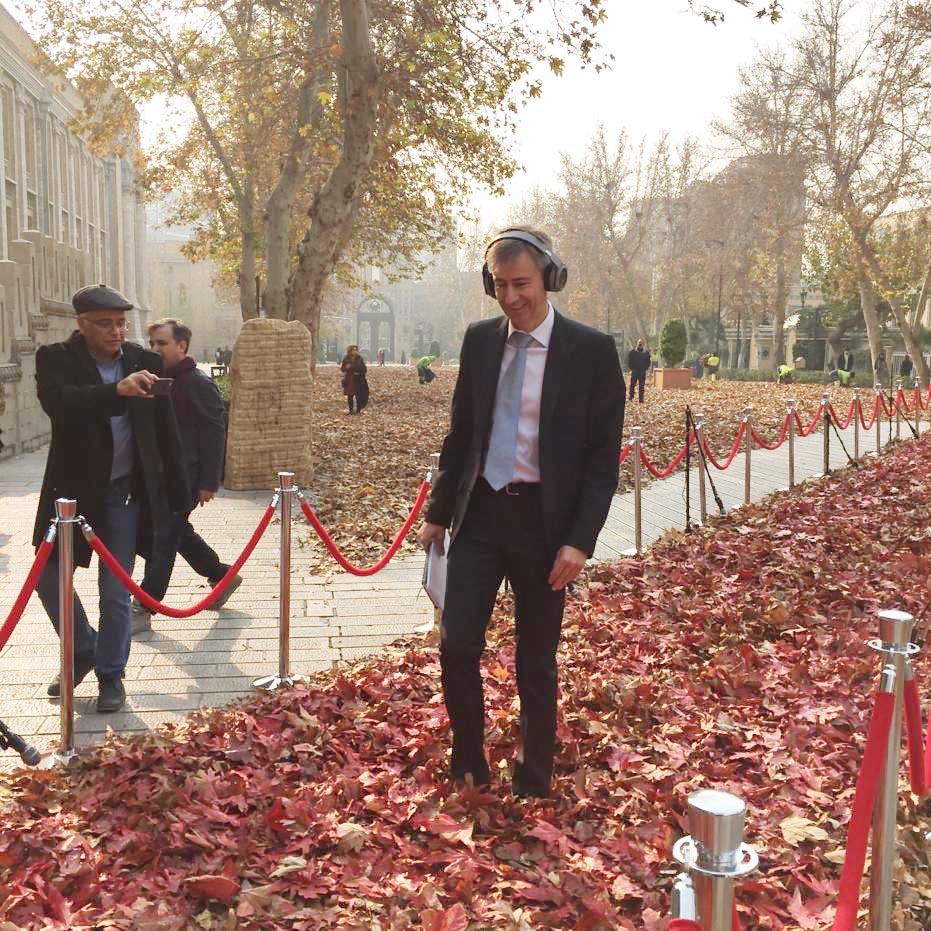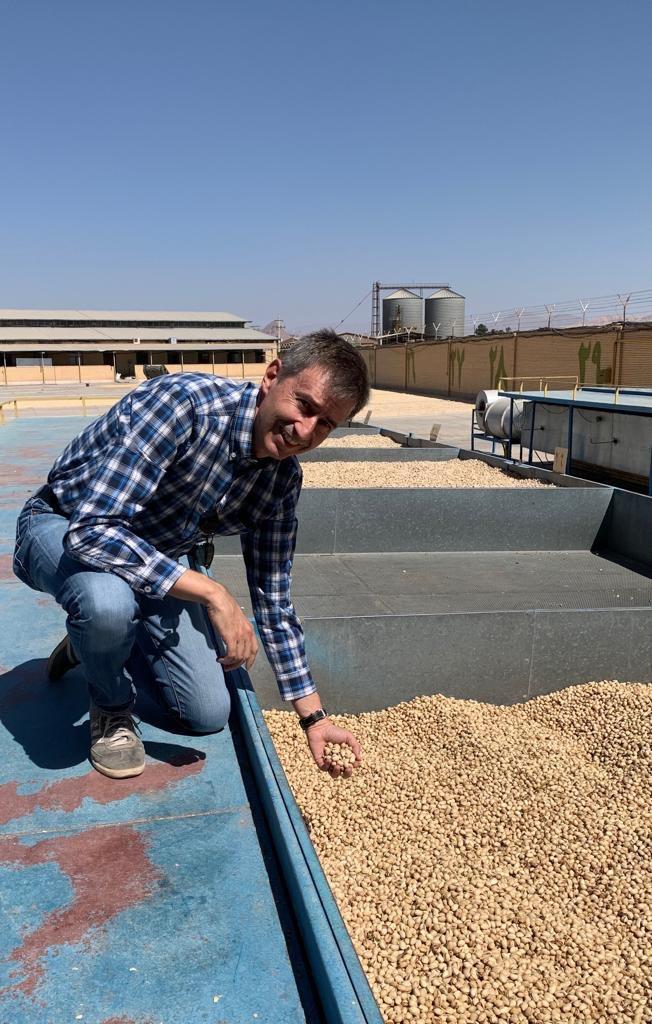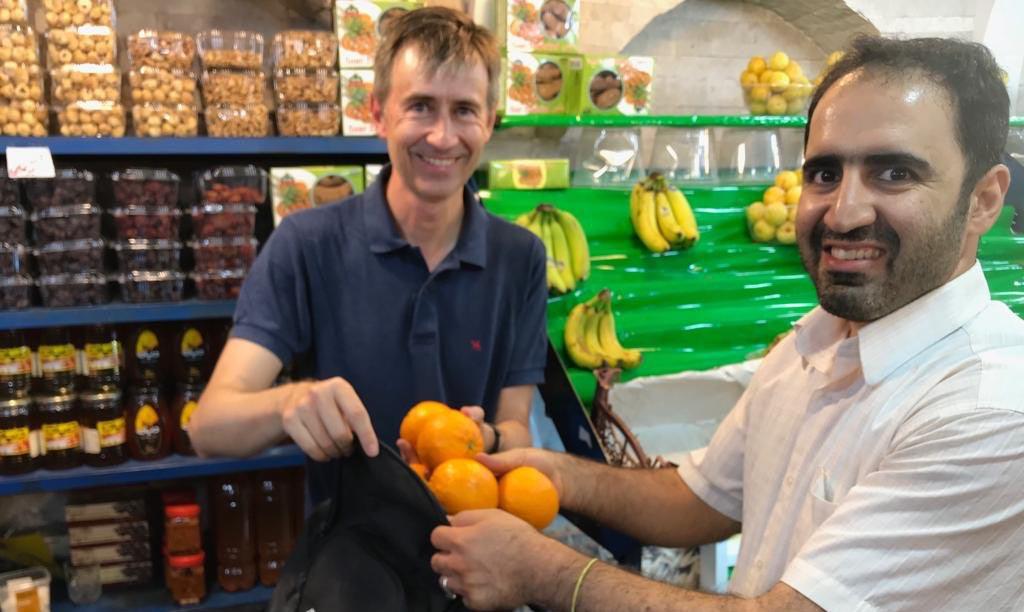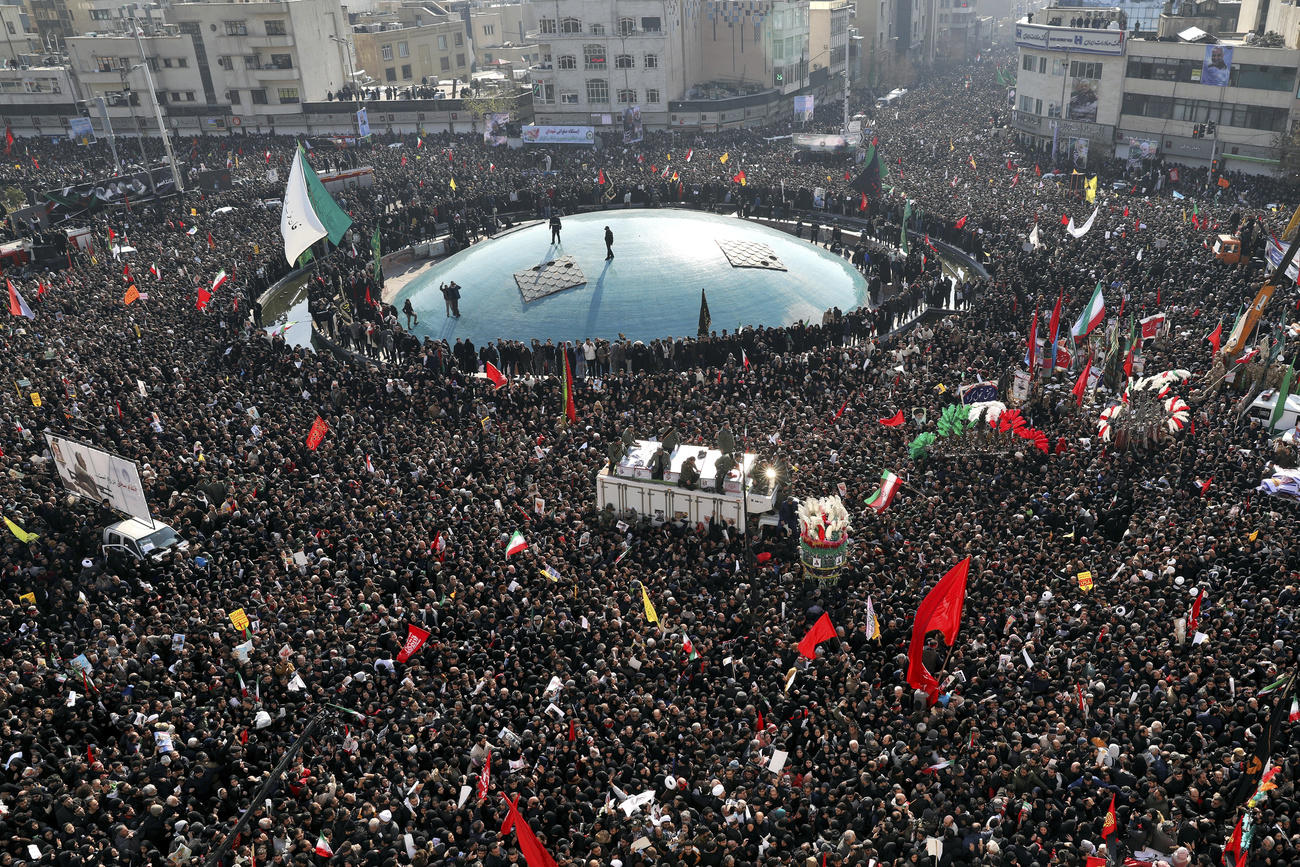
Who is Trump’s Swiss postman in Tehran?

With the US and Iran this week on the verge of war, they nevertheless exchanged messages via the Swiss embassy in Tehran, headed by Ambassador Markus Leitner. He is the man in charge of implementing Switzerland’s “protecting power” mandates for both countries in conflict.
Ambassador Markus Leitner has been in post for more than two years and is well placed to ensure that diplomatic professionalism is maintained in the current heated climate.
Switzerland’s work as a messenger between Washington and Tehran is kept highly confidential, in order to maintain the trust of the two sides. Again this week, the foreign ministry in Bern would say only that there had been an exchange of messages between the enemy countries.
Leitner told the Neue Zürcher Zeitung newspaper in September that since the US withdrew from the nuclear agreement with Iran in 2018, the protecting power mandate had been giving him more work. It was taking up to 50% of his work time, he said, and now that may well be more.

24 years in the foreign ministry
Leitner, 53, has been in the foreign ministry for 24 years and enjoys a “very good reputation”, according to a former diplomat. On Twitter the father of two sometimes presents a casual, dynamic image, dressed in jeans and open shirt.
He studied economics in Zurich and first worked in industry, trade and finance. Then in 1996 he joined the foreign ministry, where one of his first tasks was on freeing Switzerland from its role as a hub for blood diamonds.
This was followed by the first postings abroad in South Africa and Chile.

Leitner’s first appointment as ambassador was to Egypt in 2013, at the height of a national crisis there. “I handed my credentials to then-President Morsi, and two weeks later he was deposed,” he later recounted. During the wave of demonstrations at that time, he slept at the embassy in a sleeping bag in case his way to work was blocked.
Strong nerves
In Egypt, Leitner showed the coolness needed in times of crisis. Ambassadors must be reachable day and night. And in Tehran he must signal normality to the outside world, because the Swiss embassy is an indicator for the population of Tehran. If there were to be agitation or staff leaving, it could be taken as sign of an impending US attack and cause panic. At the same time, there are often virulent anti-US demonstrations in front of the embassy.
Leitner’s nerves of steel were also necessary in the negotiations that led to a prisoner exchange between Iran and the US last December. The ambassador “worked tirelessly” on the prisoner release, according to a member of the US government.
All eyes on Davos
Leitner told Radio Zürisee last year that life in Iran is “more normal than one might imagine from the outside. In the evening you can go to restaurants and cafés, and especially in Tehran, you can move around easily”.

Leitner cannot be reached for interviews at the moment, but he is probably spending less time in cafés. The situation remains tense and both the US President and the Iranian Foreign Minister have announced they will attend the World Economic Forum (WEF) in Davos in two weeks’ time. That means they will probably need their Swiss messenger.

More
How ‘messenger’ Switzerland deals with the US and Iran

In compliance with the JTI standards
More: SWI swissinfo.ch certified by the Journalism Trust Initiative






























You can find an overview of ongoing debates with our journalists here . Please join us!
If you want to start a conversation about a topic raised in this article or want to report factual errors, email us at english@swissinfo.ch.